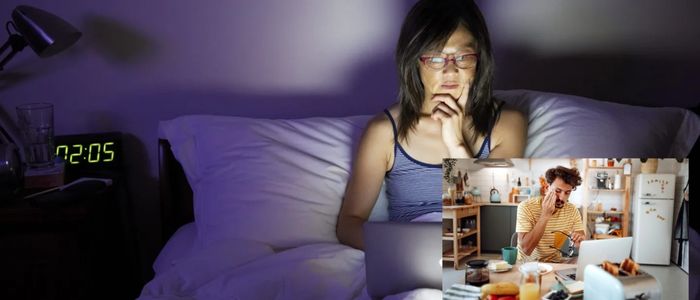Contrary to evidence of laziness or a lack of discipline, this pattern has been attributed to poor sleep hygiene, problems that occur during sleep, or a specific sleep disorder. “We’re getting sleep but it’s not the right kind of sleep that we should be getting,” said Dr. Allison Harvey, a professor of psychology and the director of a sleep and mood research clinic in California, adding that the biological 24-hour clock inside us is key to our mental, physical, cognitive and social health. When disrupted, it can ruin everything from problem solving to emotional regulation.
Understanding and Re-Training Your Sleep-Wake Cycle
Dr. Michelle Drerup, a director of behavior medicine at a sleep disorders center in Ohio, advises starting with monitoring your sleep. Keep track of what time you go to bed and wake up. Frequently a late circadian rhythm is at fault here, where melatonin (the sleep hormone) just starts to be released too late in the evening. This time lag can result in something called sleep inertia when you feel groggy in the morning.
Chronotypes, such as whether someone is a “night owl” or an “early bird,” are linked to these biological rhythms. To move your schedule around, Dr. Harvey recommends making small incremental adjustments — turning in 15 to 30 minutes earlier each night until the new schedule feels normal. It is commonly used, however, by weekday sleep-deprived individuals to "catch up" on their sleep (Morrison et al., 2010c), which can exacerbate the issue. Dr. Drerup recommends sleeping in no more than an hour past the weekday wake-up time on weekends.
Good sleep hygiene counts as well. There are other important habits as well: Refrain from caffeine and heavy meals late in the day; limit your screen time before bed; and avoid content that’s so stimulating, that it tightens your intestines with anxiety. Dr. Schütz suggests darkening lights and doing soothing activities such as reading prior to bedtime. Teenagers naturally multitask into the evening but this hinders their wind-down and the ability to fall asleep, particularly as deep sleep reduces with age.
In the morning, having a wake-up routine can also help signify to your brain that it’s time to wake up for the day. Dr. Drerup recommends doing something simple like washing your face or brushing your teeth to help build momentum. 2, Do away with the snooze button – it only disrupts sleep even more. Exposure to morning light may also reset your body clock and make you feel more alert. Dr. Harvey stresses the importance of daytime physical activity to encourage nighttime tiredness, especially for people with sedentary jobs.
Other considerations
Experts generally are in line that adults require seven to nine hours of sleep per night, though individual needs will vary. According to Dr. Schütz, many individuals may need even closer to nine hours to feel truly rested, even if they don’t realize that is the case. By monitoring how you feel after various amounts of sleep, you can identify your own ideal and begin making positive lifestyle changes.
Naps can be beneficial for memory and cognitive function, but only if timed correctly. Be cautious of long or late-afternoon naps that could impair the ability to fall asleep at night, Dr. Drerup says. Dr. Schütz suggests making naps 20 to 30 minutes long.
Long-standing morning haziness also suggest having a sleep disorder, such as obstructive sleep apnea. If it doesn’t, it’s time to see a doctor, Dr. Schütz says. Some drugs, like over-the-counter sleep aids and allergy medications, may also cause morning drowsiness.
Mental health is also at play. Depression can induce extended sleep inertia, Dr. Harvey said, so that a depressed person “feels groggy four or six hours, say, after he wakes up. The key to breaking the cycle and feeling more rested and alert isn’t likely to be found in a pill or cup of coffee ‚Äî but simply in identifying and addressing underlying issues.
Stay informed with Newsbuck – your go-to destination for the latest global news, trends, and updates across politics, entertainment, health, tech, and more. Explore smarter stories every day at Newsbuck.
















